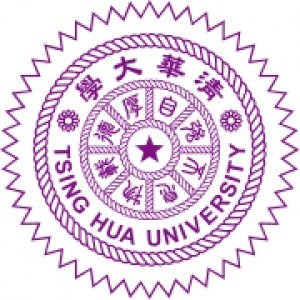Photos of university / #londonschoolofeconomics
Management at the London School of Economics and Political Science (LSE) is a dynamic and rigorous programme designed to equip students with a comprehensive understanding of organizational and strategic management principles. The programme combines theoretical frameworks with practical applications, preparing students to excel in diverse management roles across various industries globally. Throughout the course, students engage with core topics such as organizational behavior, leadership, strategic decision-making, innovation, and operational management. LSE's renowned faculty, numerous research seminars, and collaboration opportunities ensure that students stay at the forefront of developments in management thinking and practice. The curriculum emphasizes critical thinking, analytical skills, and a deep understanding of the economic and social contexts within which firms operate. Students also have the chance to tailor their studies through electives, enabling specialization in areas like entrepreneurship, corporate governance, or digital transformation. The programme fosters a global outlook, encouraging students to consider international best practices and cross-cultural challenges. Through case studies, group projects, and internships, learners develop teamwork and communication skills essential for successful leadership roles. The management programme at LSE is ideal for aspiring managers, entrepreneurs, or policy-makers seeking to understand the complexities of modern organizations. Graduates are prepared to contribute effectively to their organizations or to pursue further research or doctoral studies in management or related disciplines. The programme benefits from LSE’s extensive global network, offering students valuable opportunities for networking and career advancement. Overall, the Management programme at LSE is committed to developing knowledgeable, innovative, and responsible leaders who can navigate the evolving global business landscape with confidence.
The MSc Management programme at the London School of Economics and Political Science (LSE) is designed to equip students with a comprehensive understanding of the fundamental principles and contemporary practices of management in a global context. The programme offers a rigorous curriculum that combines theoretical insights with practical applications, preparing graduates for leadership roles across diverse industries and sectors. Throughout the course, students explore core topics such as strategic management, organizational behavior, financial management, marketing, and operations management, providing a well-rounded foundation in business and management principles.
In addition to these foundational modules, the programme emphasizes critical thinking, analytical skills, and the ability to adapt to rapidly changing environments. Students have opportunities to engage in real-world projects, case studies, and internships, fostering practical experience and industry connections. The programme also offers specializations and elective courses that allow students to tailor their learning towards their specific career interests, including innovations in digital management, entrepreneurship, social enterprise, and sustainable business practices.
LSE’s MSc Management encourages a global perspective, with coursework that addresses international business challenges and opportunities. Students participate in seminars, workshops, and collaboration with faculty experts who are leading scholars in their fields. The programme promotes a diverse and inclusive learning environment, bringing together students from around the world to exchange ideas and perspectives.
Graduates of the MSc Management programme are well-positioned to pursue careers in consultancy, corporate management, entrepreneurship, finance, and public sector leadership. They also develop critical skills in communication, leadership, and strategic thinking, enabling them to make impactful contributions within their organizations. With access to LSE’s extensive alumni network and career services, students receive ongoing support as they transition into their chosen careers.
Overall, the MSc Management at LSE offers a challenging, stimulating, and dynamic learning experience that prepares students not just to succeed in their careers but to become innovative leaders shaping the future of global business and management.
Program requirements for the MSc Management at the London School of Economics and Political Science typically include a completed online application form, academic transcripts demonstrating strong academic performance, a personal statement outlining the applicant’s motivation and relevant experience, and two academic references. Applicants are generally required to hold a good undergraduate degree, equivalent to a UK 2:1 or above, in any discipline. For international students, evidence of English language proficiency is necessary, with qualifying scores on tests such as TOEFL or IELTS—typically an IELTS overall score of at least 7.0 with a minimum of 6.0 in each component. Work experience is not a formal requirement, but relevant internships or professional experience can strengthen an application.
Applicants must submit a CV outlining academic achievements and any relevant work experience or extracurricular activities. The admissions committee also considers the applicant's personal statement, which should clearly communicate their interest in management, career aspirations, and how the programme aligns with their goals. Interviewees may be invited for an interview, either in person, by phone, or via video conference, as part of the selection process. Certain applicants may need to provide a portfolio or additional supporting documents if they have demonstrated particular skills or experiences relevant to management.
Additional criteria include a demonstrated ability to undertake rigorous academic work, critical thinking skills, and a motivation to develop a comprehensive understanding of management principles and practices. The programme encourages applicants from diverse academic and professional backgrounds, aiming to cultivate a dynamic and international student community. All application materials must be submitted by the specified deadline, and incomplete applications are unlikely to be considered. Meeting the minimum requirements does not guarantee admission, as selection is competitive and based upon overall suitability of the candidate profile.
The Management programme at the London School of Economics and Political Science offers a comprehensive overview of the financial aspects related to business operations and strategic decision-making. Tuition fees for international students are set annually and can vary depending on the specific course components and year of study. For the most current information, prospective students should consult the official LSE website. In addition to tuition, students should consider living expenses in London, which include accommodation, food, transportation, and personal costs. The estimated annual living costs are outlined by LSE and are updated regularly to reflect inflation and market changes. Students are encouraged to explore various sources of funding, including scholarships, bursaries, and financial aid options provided by LSE. The university offers a range of scholarships for outstanding students, some of which are targeted specifically towards international applicants. Students are advised to apply early to maximize their chances of receiving financial support. External funding options may include government grants, private scholarships, and student loans available in their home countries or in the UK. The management programme itself does not include a specific integrated financial support component, but students benefit from the university’s extensive Career Services and employer connections, which can enhance employment prospects upon graduation. Additionally, part-time work opportunities are available for students during term time, subject to visa regulations and work restrictions for international students. The cost of textbooks and study materials should also be factored into the overall financial planning. LSE provides detailed guidance and resources to help students plan and manage their finances throughout their studies. Overall, financing a Management degree at LSE requires careful planning and consideration of tuition fees, living costs, and potential funding sources to secure a successful and financially sustainable academic experience.
The Management program at the London School of Economics and Political Science (LSE) offers a comprehensive curriculum designed to develop students' understanding of strategic, organizational, and operational aspects of management in a global context. The program emphasizes both theoretical frameworks and practical applications, preparing graduates for leadership roles across various sectors, including finance, consulting, entrepreneurship, and public administration. Students engage with core subjects such as organizational behavior, strategic management, innovation, marketing, and finance, which are complemented by electives allowing specialization in areas like entrepreneurship, digital innovation, or corporate governance.
The program integrates rigorous analytical methods, critical thinking, and real-world problem-solving exercises, fostering skills that are highly valued in dynamic business environments. Opportunities for experiential learning include case studies, group projects, internships, and interactions with industry leaders through seminars and guest lectures. The multicultural environment at LSE provides a unique platform for students to develop global perspectives and cross-cultural competencies essential for international careers. The faculty comprises renowned academics and practitioners who bring cutting-edge research and industry insights into the classroom.
Graduates of the Management program are equipped with strong leadership qualities, strategic insight, and a deep understanding of organizational dynamics, enabling them to adapt to and shape rapidly changing markets. The program also offers career support services, networking events, and access to an extensive alumni community, facilitating professional development and job placement across diverse fields worldwide. The duration of the program typically spans one year for taught postgraduate degrees, with options for full-time study. Admission requires a strong academic background, relevant work experience, and demonstrated motivation to pursue a career in management. Overall, the LSE Management program aims to cultivate innovative, responsible, and strategic managers prepared to make a significant impact in their organizations and society.








